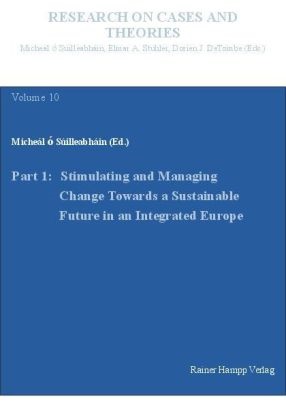Read more
This volume contains a first broad cross-section of papers read at the 17th international conference of WACRA EUROPE e.V. held in South Tyrol, Italy, in September 2000; we hope to publish a second volume before the end of the current year. The theme of the conference was 'Change and Flowing Equilibria: Local Agenda 21 Processes and Business Interests'. In keeping with established tradition, WACRA EUROPE e.V. continues to provide an East-West European forum, spanning the humanities, pedagogy, and technology, to promote the discussion of major societal issues of our time such as Sustainable Development and the Transition to European Integration.
Local Agenda 21 processes rely heavily on the participation and the decisions of individual citizens ('civil society') and enterprises. Measures to achieve sustainability often require deep-seated changes, whether in the motivation and interaction of individual subjects, in curriculum reform within education or in relation to technology and the investments upon which progress depends.
A broad theoretical discussion of these issues, stimulated by new ideas spilling over the boundaries of various scientific disciplines, will be found in the first group of these papers entitled 'Analytical Concepts, Tools and Theories for the Understanding and Reform of the Human Eco-System'.
In the second group, entitled 'Meeting the Challenge of Higher Standards in Education, Production, Administration and the Eco-Sphere' will be found a set of papers, the majority of which discuss how some of the Baltic states are attempting to cope with development and transition problems involving far-reaching social and political reform. They throw valuable light on important economic sectors such as trade, transport and tourism but also illuminate adaptation problems within individual enterprises.
The third set of papers is entitled 'The Interplay of Public and Private Sector Initiatives to Protect the Environment: Some Baltic Cases'. These also deserve a wide readership, not least because they offer first-hand insights into well-designed and ambitious reform measures that, in many cases, are already well on the road to success. It is particularly gratifying to note the constructive interaction which prevails between public administrators and academics in this field in monitoring the quality of the environment and adopting policy measures to ensure lasting improvements.

